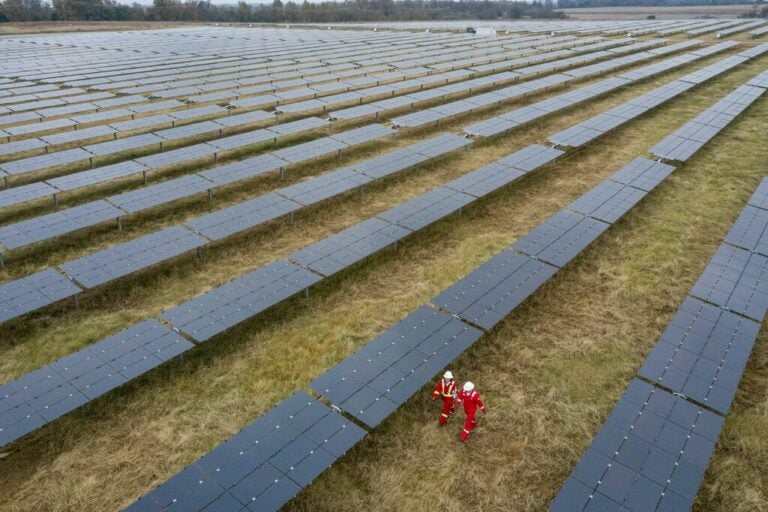
Greater standardisation of renewable energy projects will be critical to reaching net zero by 2050, according to a joint report by Princeton University and engineering company Worley.
By 2030, engineers should be working to agreed global standards, with designs based on equipment and modules already available in the supply chain, the report said, which argued that bespoke infrastructure projects would hold back deployment as the world strives towards net zero.
Try Premium for just $1
- Full premium access for the first month at only $1
- Converts to an annual rate after 30 days unless cancelled
- Cancel anytime during the trial period
Premium Benefits
- Expert industry analysis and interviews
- Digital access to PV Tech Power journal
- Exclusive event discounts
Or get the full Premium subscription right away
Or continue reading this article for free
By 2026, the report wanted to see modularisation becoming more widely used, large-scale investments into supply chains and projects setting new benchmarks when it came to standardisation.
In 2030, however, standards and standardised designs would need to be widespread even in complex industries, with governments underwriting supply chains for pre-manufacture, lead-times of less than six months for complex equipment and continuous improvements on schedule benchmarks.
PV Tech has previously called for greater collaboration and standardisation within the solar industry to create synergies across the supply chain and drive deployment.
Meanwhile, more effort needs to be directed towards the digitisation of energy systems. Currently, there are bespoke digital systems for PV projects and “digital enablers” are being used across the supply chain. But by 2030, a “cradle-to-grave” digital project progression would need to be achieved alongside the emergence of standardised digital systems.
The report, entitled From Ambition to Reality: Measuring change in the race to deliver net zero, which is the second in a series, said the above measures would be needed to spur renewables deployment to the levels required to reach net zero by 2050. It also includes several other policy measures needed to reach that target, which you can explore in more depth here.
Using Australia as a focus, the report looked at how to convert ambitious thinking into action, outlining five different shifts in the way infrastructure is delivered, which the authors believe are necessary to meet the scale and speed of mid-century net zero shifts.
“We developed the five shifts and the indicators of change to describe how the delivery of major industrial infrastructure needs to change to build the scale and enable the speed of delivery required to get to net zero by 2050,” said Sue Brown, executive group director of sustainability for Worley.
“But project delivery practices need to have radically transformed by 2030 for us to have any chance.”






